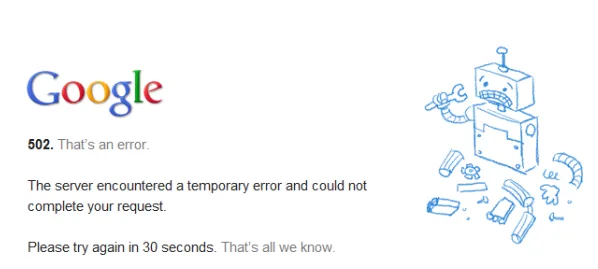In an unprecedented move that left billions of users stunned, Google goes offline for a full 24 hours, triggering global chaos, memes, panic — and surprisingly, deeper questions about our dependence on a single tech platform. The unexpected shutdown of the world’s most used search engine caused traffic crashes, disrupted businesses, and exposed the fragile nature of the internet ecosystem.
This wasn’t just a technical glitch — it was a bold, deliberate experiment that many believe will go down in tech news history.
🌐 What Happened When Google Went Dark?
At approximately 9:00 AM UTC, users across the world trying to access Google Search were greeted with a blank white screen and a short message:
There was no prior announcement. No warnings. Just silence. Users flooded X (formerly Twitter), Reddit, and Instagram trying to confirm whether the issue was local or global. Within minutes, the hashtag #GoogleShutdown began trending worldwide.
As the news spread, it became clear: Google had intentionally gone offline.
📉 The Immediate Impact of the Google Shutdown
The Google outage impact was felt instantly across sectors. Here’s what unfolded during the 24-hour blackout:
🔍 1. Search Traffic Collapsed
Over 8.5 billion daily searches came to a standstill.
Businesses relying on Google Ads saw a steep drop in revenue.
SEO professionals and marketers were blindsided.
💼 2. Business Operations Halted
Companies that rely on quick information, from logistics to law firms, were left without answers. Cloud-based Google services, though functional, saw a dip in usage due to confusion.
👨🎓 3. Education and Learning Interrupted
Students and educators who use Google Search for assignments and research were left scrambling for search engine alternatives like Bing, DuckDuckGo, and Yahoo.
📱 4. Social Media Exploded
Memes, panic, and even conspiracy theories swirled online. Many assumed it was a cyberattack, while others joked that AI had taken over.
💡 Why Did Google Go Offline?
After the platform returned 24 hours later, Google released a brief but provocative statement:
Tech analysts believe this was an intentional move to:
Highlight internet dependency on a single platform.
Test how the global internet reacts to the absence of its most-used tool.
Examine traffic redistribution and user behavior.
The bold experiment, though controversial, sparked meaningful discussions about digital centralization and the need for more decentralized information networks.
🔄 Who Benefited from the Shutdown?
While most were affected negatively, a few platforms and concepts gained from the surprise event:
✅ Winners:
Bing and DuckDuckGo: Saw a 500%+ spike in usage overnight.
Decentralized search tools: Received new user signups.
Tech media: Gained millions of hits covering the event.
❌ Losers:
Small businesses relying solely on Google Ads.
E-commerce sites using organic Google traffic.
New users unfamiliar with any search engine alternatives.
🧠 What This Means for the Future
The incident served as a global wake-up call. While Google goes offline might sound like a one-time event, it forced both users and businesses to confront major truths:
The world is overly dependent on Google.
Alternative platforms should be kept in mind and practiced.
Businesses need multi-platform digital strategies.
Governments may need to rethink regulation and data decentralization.
🔚 Final Thoughts: A Day Without Google Changed Everything
When Google goes offline, the internet doesn’t just pause — it loses its core navigation tool. For billions of users, it was more than just a blackout; it was a reflection of how fragile our online infrastructure can be.
The 24-hour shutdown might be over, but its effects will ripple through the tech world for years. It reminds us that diversity in tech tools isn’t just smart — it might be necessary for digital survival.
